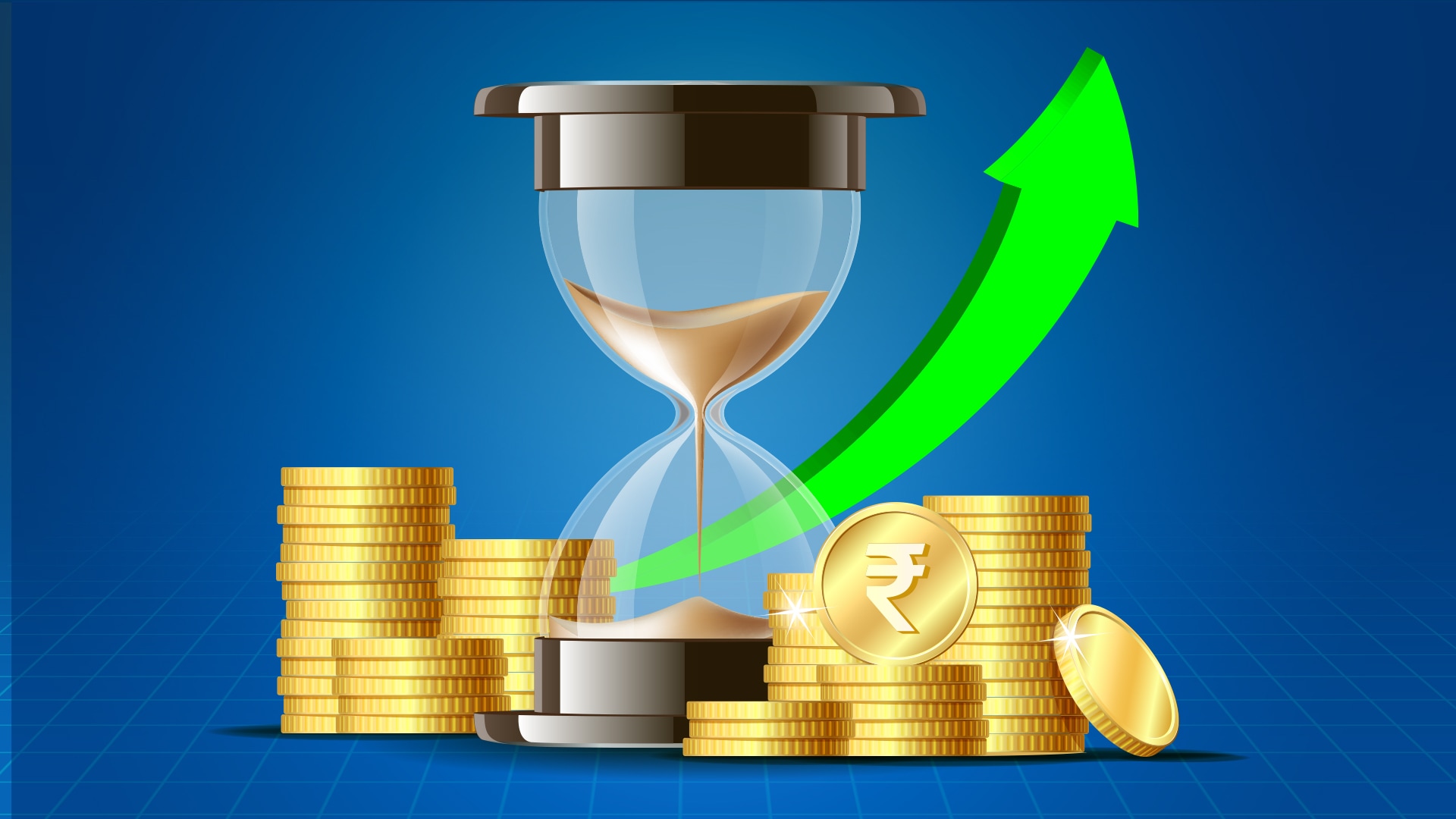Invest in fixed deposits and ensure secure financial growth with competitive rates and special tenors.
Deposit accounts provide a convenient way to securely deposit or withdraw money whenever needed, offering easy access to your funds. When you add money into a deposit account, you may earn interest over time, depending on the type of deposit account. Additionally, learning about different types of account holders is essential as well to understand who can benefit from the deposit accounts.
Deposit account is a bank account where you can deposit money and earn interest, while keeping the funds safe and secure. Each type of deposit account serves different purposes, such as savings, business transactions, or investment goals.
Here is a compiled list of the types of deposit accounts:
Savings Account
Current Account
Salary Account
Fixed Deposit Account (Term Deposit)
Recurring Deposit Account
Specialised Deposit Accounts (NRI, Demat)
Let's check out each of these types in details:
A savings account is one of the most common types of deposit accounts that you can use to deposit money and earn interest.
Features and Benefits of a Saving Account:
Allows you to deposit or withdraw money as and when needed
Safe and secure way to store money
You can earn interest on the deposited amount at a rate of interest decided by the bank
Disadvantages of Saving Account:
As compared to other deposit accounts, savings accounts come with low interest rates
In some cases you get restrictions on the amount you can withdraw
There are 4 types of savings accounts:
Regular savings account with moderate interest rates
High-interest savings account with higher interest rates but having stricter terms
Joint savings account that allows multiple account holders
Basic or no-frills savings account suitable if you have low income or minimal transaction needs
A current account is a bank account designed for frequent transactions, providing easy access to funds for day-to-day financial activities
Features of Current Account:
You get unlimited transactions
Facilitates frequent and high-volume transactions
No limit on the number of times you can deposit and withdraw the money
Unlike savings accounts, current accounts generally do not offer interest
Ideal Users of Current Account:
Businesses
Professionals
Individuals with frequent transactions
Self-employed persons
Types of Current Accounts:
Individual current account is suitable for individuals with high transactional needs
Business current accounts are specifically designed for companies
Packaged current account offers additional perks, such as insurance or discounts
A salary account is a type of deposit account that is opened by companies to credit salaries to their employee’s accounts.
Features of Salary Accounts:
Zero-balance account
You are not required to maintain a minimum balance
Salary gets credited automatically in this account
Insurance on bank deposits
Higher interest rates
Loan facilities at competitive interest rates
Ideal Users of Salary Accounts:
Professionals
Corporate employees
IT professionals
You can deposit a certain amount in a fixed deposit account for a specific period and at a specific interest rate. However, you cannot withdraw these funds until the said period ends.
Features of Fixed Deposit Account:
As compared to a savings account, you earn a higher interest rate
Specific lock-in period during which the funds stay in the account for a fixed term
You can withdraw the funds only after it attains maturity
If withdrawn before maturity you might get a penalty incurred
Can often be used as collateral for loans
Types of Fixed Deposit:
Regular Fixed Deposit
Cumulative Fixed Deposit
Non-Cumulative Fixed Deposit
Foreign Currency Fixed Deposit
A recurring deposit account allows the account holder to deposit a fixed amount of money at regular intervals for a specific tenure. At the end of this tenure, the depositor receives the total amount invested plus compound interest.
Features & Benefits of Recurring Deposits:
Compound interest calculation
Allows you to add small deposits every month
Interest that is paid on the total deposited amount upon maturity
There are two types of recurring deposit accounts:
Standard Recurring Deposit
Flexi Recurring Deposit
Senior Citizen Recurring Deposit
Tax-Saving Recurring Deposit
Child Recurring Deposit
Corporate Recurring Deposit
Special Tenure Recurring Deposit
Cumulative vs. Non-Cumulative Recurring Deposit
Specialised deposit accounts are the ones used to manage a special-purpose fund.
Here are 4 types of specialised deposit accounts:
1. NRI Account
An NRI deposit account caters to Non-Resident Indians (NRIs) who wish to manage their earnings through this type of deposit account in India.
2. NRE Account
Non-Resident External account is used by NRIs to remit foreign earnings to India without taxation.
3. NRO Account
Non-Resident Ordinary accounts are used to manage income earned in India.
4. FCNR Account
Foreign Currency Non-Resident account is for holding foreign currency deposits without the risk of exchange rate fluctuations.
5. Demat Account
A Demat (Dematerialized) account holds financial securities like shares, bonds, government securities, mutual funds, etc. in electronic form.
Specialised deposit accounts are designed to meet specific financial needs and their primary purpose is to offer curated benefits and features that are not typically available in regular accounts
You can get a joint deposit account with any of your family members and share access to the funds with each other.
Benefits and Risks of Joint Account:
Convenient for families or business partners
Allows all the holders to gain access to the deposited funds
All account holders can see the transactions
Account holders are jointly responsible for any debts or overdrafts
No individual control
Conflicts over financial decisions can create tension
Deposit accounts play a critical role in managing personal finances. Here’s why they are important:
Different types of bank accounts provide a safe place to keep money, make transactions, and earn interest, as applicable.
Deposit accounts in India are insured under the Deposit Insurance and Credit Guarantee Corporation (DICGC) for an amount up to ₹5 Lakhs.
Deposit accounts make transactions easy, whether for paying bills, transferring money, or accessing funds.
Savings accounts and FDs offer interest, making idle money grow for you.
Certain accounts provide immediate access to funds when needed.
Deposit accounts like savings or RD can help build an emergency fund.
A well-maintained deposit account can improve your relationship with your bank, potentially leading to better loan offers.
Before selecting a deposit account, you should consider the following factors:
Go for deposit accounts offering higher interest rates that can help you maximise your savings or investments
Analyse if you can easily withdraw your money or whether there is complex procedure to follow
Enquire if there are any fees for maintaining the account, withdrawing funds, or transferring money
Some accounts are subject to a tax on the earned interest. So, consider how this might affect your returns
Key Takeaways
Deposit accounts are of 7 types- savings, current, salary, fixed-deposit, recurring deposit, specialised deposit (accounts like NRI, Demat), and joint deposit accounts
Deposit accounts help individuals and businesses manage their finances efficiently
Different types of customer accounts serve different financial needs, like savings, business operations, and planning investments
- Understanding the features and benefits of each type of bank deposit account is essential for making informed financial decision
Choosing the right deposit account depends on your financial goals, whether it's saving for the future, running a business, or managing everyday expenses at the present. By understanding the different types of available accounts, you can make informed decisions and ensure that your money works for you in the best way possible.
Check Monthly Interest Rates on Your Fixed Deposits |
||

The information provided by BFDL is related to the rates provided by Banks and Deposit taking NBFCs as available from public domain and under no circumstances is intended to be source of advice or recommendation of any financial investment advice or endorsement of any sort. BFDL disclaims any responsibility or liability regarding inaccuracies, omissions, mistakes etc. as well as offers and use of such information set out is entirely at the User’s own risk and User should exercise due care prior taking of any decision, on the basis of information mentioned hereinabove. Display of any intellectual property along with the related product information does not imply BFDL’s partnership with the owner of the intellectual property of such products and is solely for the purpose of information, unless otherwise provided by BFDL.
FAQs
What type of deposit accounts are best for everyday transactions?
Savings accounts and current accounts are ideal for everyday transactions due to their flexibility.
How many types of account holders are there?
Banks typically categorise account holders as individuals, joint holders, and businesses.
What is a bank deposit?
A bank deposit is the money you keep in a bank for safety and earn interest over it.





